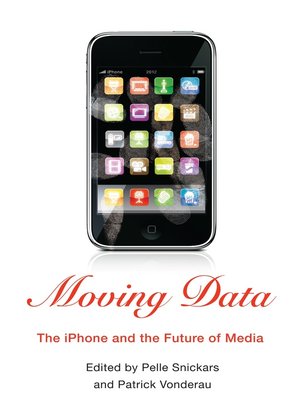
Sign up to save your library
With an OverDrive account, you can save your favorite libraries for at-a-glance information about availability. Find out more about OverDrive accounts.
Find this title in Libby, the library reading app by OverDrive.



Search for a digital library with this title
Title found at these libraries:
| Loading... |
The iPhone has revolutionized not only how people communicate but also how we consume and produce culture. Combining traditional and social media with mobile connectivity, smartphones have redefined and expanded the dimensions of everyday life, allowing individuals to personalize media as they move and process constant flows of data. Today, millions of consumers love and live by their iPhones, but what are the implications of its special technology on society, media, and culture?
Featuring an eclectic mix of original essays, Moving Data explores the iPhone as technological prototype, lifestyle gadget, and platform for media creativity. Media experts, cultural critics, and scholars consider the device's newness and usability—even its "lickability"—and its "biographical" story. The book illuminates patterns of consumption; the fate of solitude against smartphone ubiquity; the economy of the App Store and its perceived "crisis of choice"; and the distance between the accessibility of digital information and the protocols governing its use. Alternating between critical and conceptual analyses, essays link the design of participatory media to the iPhone's technological features and sharing routines, and they follow the extent to which the pleasures of gesture-based interfaces are redefining media use and sensory experience. They also consider how user-led innovations, collaborative mapping, and creative empowerment are understood and reconciled through changes in mobile surveillance, personal rights, and prescriptive social software. Presenting a range of perspectives and arguments, this book reorients the practice and study of media critique.






